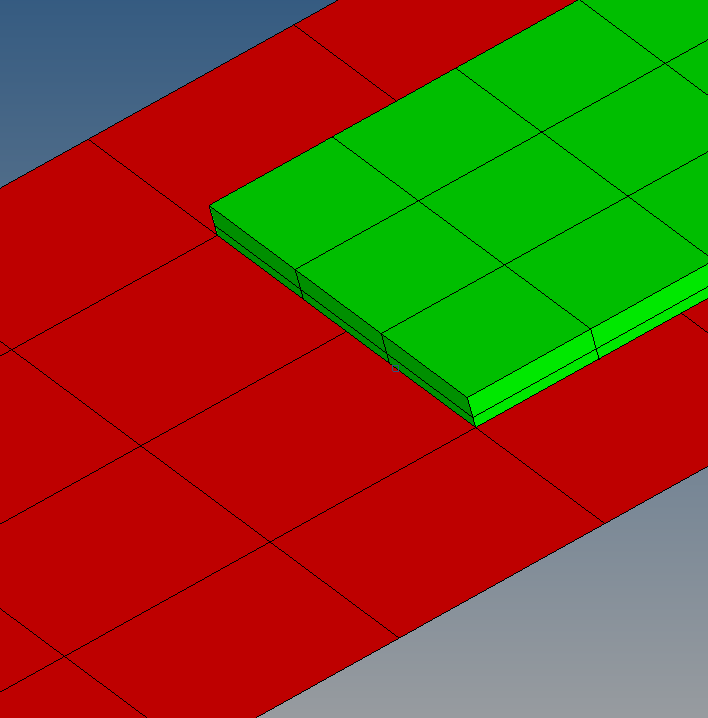Hello,
I am trying to simplify my model by modelling a zone with solid elements and the rest of the part with shell elements, but I got a problem on how create a tied constrain between shell-solid elements so that the deplacement and rotation could be transmitted correctly from the shell to the solid elements so that the result should not present any difference from the 'plate' model where all the elements are shell.
Do you have any idea how we make this contraint successfully?
Thank you very much in advance!
<?xml version="1.0" encoding="UTF-8"?>
<?xml version="1.0" encoding="UTF-8"?>